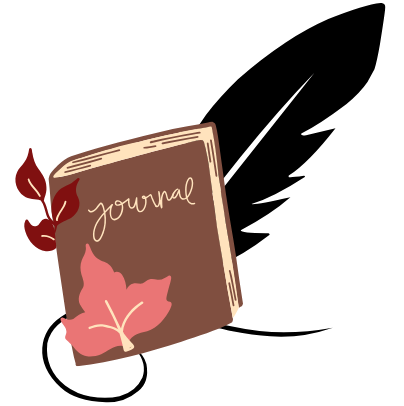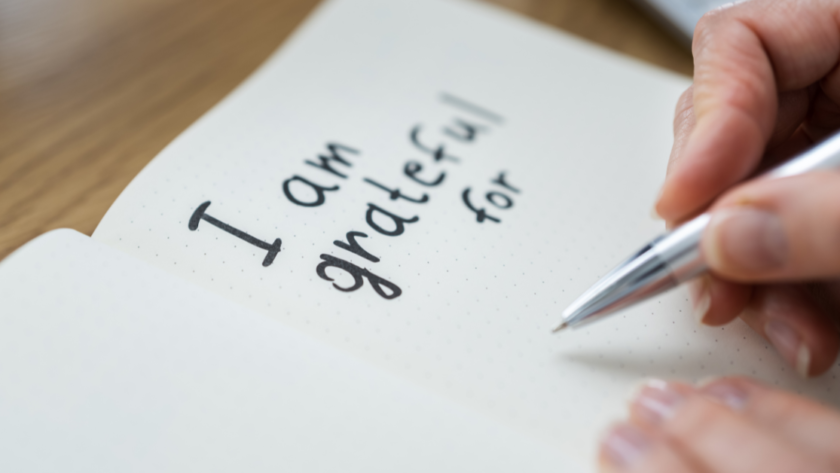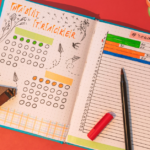Journaling has been my go-to method for self-reflection and personal growth for years. What started as a simple habit of jotting down thoughts has evolved into a powerful tool that’s transformed various aspects of my life.
I’ve discovered that the benefits of journaling extend far beyond what most people realize.
In this post, I’ll share some unexpected ways that journaling can greatly impact your life, backed by research and personal experience.
1. Boosting Immune Function
One of the most surprising benefits of journaling is it’s potential to strengthen your immune system. It might sound far-fetched, but there’s scientific evidence to back it up.
A study by James Pennebaker, a psychologist at the University of Texas, found that expressive writing about traumatic experiences led to improved physical health, including a more robust immune response.
The theory is that by processing emotional experiences through writing, we reduce the overall stress on our bodies. This reduction in stress allows our immune system to function more effectively.
It’s like giving your body’s defense mechanism a power-up through the simple act of writing.
Expressive writing has been shown to increase the production of lymphocytes, white blood cells that play a crucial role in fighting off infections and diseases. Additionally, journaling about stressful events can help reduce the negative impact of these experiences on your physical health.
By putting your thoughts and feelings on paper, you’re essentially releasing them from your body, allowing your immune system to focus on keeping you healthy as opposed to dealing with the physiological effects of stress.
To maximize this benefit, try dedicating a portion of your journaling time to writing about challenging experiences or emotions you’re now facing. Be honest and open in your writing, allowing yourself to fully express your thoughts and feelings without judgment.
Over time, you may notice that you’re getting sick less often or recovering more quickly when you do fall ill.
2. Enhancing Sleep Quality
If you’ve ever found yourself lying awake at night, mind racing with thoughts and worries, journaling might be the solution you’ve been looking for. Writing before bed can significantly improve sleep quality by acting as a “brain dump” for the day’s lingering thoughts and concerns.
By transferring your thoughts from your mind to paper, you’re essentially clearing mental space and reducing anxiety that might otherwise keep you awake. This practice can lead to faster sleep onset and more restful nights, allowing you to wake up feeling refreshed and ready to tackle the day ahead.
The act of journaling before bed helps signal to your brain that it’s time to wind down and prepare for sleep. As you write, you’re processing the events of the day and any worries or concerns you might have.
This can help prevent these thoughts from resurfacing when you’re trying to fall asleep.
To make the most of this benefit, establish a pre-bedtime journaling routine. Set aside 15-20 minutes before you plan to sleep to write in your journal.
Focus on reflecting on the day’s events, expressing gratitude, and addressing any concerns or worries you might have.
You can also use this time to plan for the next day, which can help reduce anxiety about upcoming tasks or events.
If you find yourself waking up in the middle of the night with racing thoughts, keep your journal by your bedside. Taking a few minutes to jot down your thoughts can help clear your mind and make it easier to fall back asleep.
3. Developing Intuition and Self-Trust
Regular journaling can be a powerful tool for developing your intuition and strengthening self-trust. By reflecting on past decisions and their outcomes, you create a personal database of experiences to draw from in future situations.
This process helps you recognize patterns in your decision-making and understand your inner guidance system better. Over time, you’ll likely find yourself making more confident choices aligned with your true self, as opposed to being swayed by external influences.
As you journal about your experiences, pay attention to instances where you followed your gut instinct or made decisions that felt right, even if they weren’t logical on the surface. Reflect on the outcomes of these decisions and how they made you feel.
Over time, you’ll start to notice patterns in your intuitive decision-making process.
You can also use your journal to explore times when you ignored your intuition and the consequences that followed. This reflection can help you understand the value of trusting your inner voice and give you the confidence to do so more often in the future.
To further develop your intuition through journaling, try incorporating stream-of-consciousness writing into your practice. Set a timer for 5-10 minutes and write without stopping, allowing your thoughts to flow freely onto the page without judgment or censorship.
This can help you tap into your subconscious mind and uncover insights you might not have accessed through more structured writing.
4. Stimulating Both Brain Hemispheres
One of the most fascinating aspects of journaling is it’s ability to engage both the logical left hemisphere and the creative right hemisphere of your brain. This dual stimulation can lead to enhanced creativity and improved problem-solving skills.
When you write, you’re not just recording facts – you’re also exploring emotions, making connections, and generating new ideas. This holistic brain engagement can help you approach challenges from fresh angles and come up with innovative solutions you might not have considered otherwise.
The left hemisphere of the brain is typically associated with logical thinking, language processing, and analytical skills. When you journal about facts, events, or plans, you’re engaging this part of your brain. On the other hand, the right hemisphere is often linked to creativity, intuition, and emotional processing.
When you write about feelings, use metaphors, or engage in free-writing exercises, you’re tapping into this creative side.
By regularly engaging both hemispheres through journaling, you’re essentially giving your brain a full workout. This can lead to improved cognitive function, enhanced problem-solving abilities, and increased mental flexibility.
To maximize this benefit, try incorporating a variety of journaling techniques into your practice. Alternate between structured, analytical writing (such as goal-setting or problem-solving exercises) and more creative, free-form writing (like stream-of-consciousness or descriptive writing).
You can also experiment with visual journaling techniques, such as sketching or mind mapping, to further engage your right hemisphere.
5. Overcoming Creative Blocks
As someone who works in a creative field, I’ve found journaling to be an invaluable tool for overcoming creative blocks. When faced with a challenging project or a lack of inspiration, free writing in my journal often helps me break through mental barriers.
The key is to write without judgment or expectation. Allow your thoughts to flow freely onto the page, no matter how random or unrelated they may seem.
You’ll often find that this process uncovers new ideas or perspectives that can jumpstart your creativity.
When you’re feeling stuck, start by describing your creative block in detail. Write about what you’re trying to achieve, what’s holding you back, and how you’re feeling about the situation.
Often, simply articulating the problem can help you see it from a new perspective.
Next, try some free association exercises. Write down a word related to your project, then list all the words or phrases that come to mind when you think of that word.
Don’t censor yourself or try to make connections – just let the words flow.
You might be surprised at the unexpected associations that emerge.
Another effective technique is to write from a different perspective. If you’re working on a story, try writing from the point of view of a minor character.
If you’re designing a product, imagine you’re the user and write about your experience.
This shift in perspective can often unlock new ideas and approaches.
Remember that the goal of journaling to overcome creative blocks isn’t necessarily to produce usable content. Instead, this involves freeing your mind from the pressure of creation and allowing your subconscious to make connections and generate ideas.
Trust the process and give yourself permission to write without judgment or expectation.
6. Improving Verbal and Written Expression
Consistent journaling can significantly enhance your communication skills, both verbal and written. By regularly expressing your thoughts and emotions on paper, you’re essentially practicing the art of articulation.
This practice can translate into more effective communication in real-life situations. You may find yourself better able to express complex ideas, articulate your feelings, or engage in meaningful conversations with others.
When you journal regularly, you’re constantly practicing the skill of translating your thoughts and feelings into words. This process helps you develop a richer vocabulary and a more nuanced understanding of language.
Over time, you’ll likely find that you’re able to express yourself more clearly and precisely, both in writing and in speech.
Journaling also provides a safe space to experiment with different ways of expressing yourself. You can try out new phrases, play with sentence structure, or explore different tones and styles of writing.
This experimentation can help you develop a more versatile and effective communication style.
To maximize this benefit, try challenging yourself to be as specific and detailed as possible in your journal entries. Instead of writing “I had a good day,” describe exactly what made the day good.
What did you see, hear, feel, or experience?
The more you practice this detailed description in your journal, the more naturally it will come to you in everyday communication.
You can also use your journal to prepare for important conversations or presentations. Write out your thoughts on the topic, explore different ways of explaining your ideas, and anticipate potential questions or counterarguments.
This preparation can help you talk more confidently and effectively when it matters most.
7. Developing Emotional Intelligence
Journaling is a powerful tool for developing emotional intelligence. Through regular reflection on your emotions and interpersonal interactions, you gain a deeper understanding of yourself and others.
This increased self-awareness can lead to improved relationships, better conflict resolution skills, and enhanced empathy. By processing your emotions through writing, you’re also likely to respond more thoughtfully in challenging situations as opposed to reacting impulsively.
When you journal about your emotions, you’re creating a record of your emotional experiences over time. This allows you to identify patterns in your emotional responses and triggers.
You might notice, for example, that you tend to feel anxious in certain social situations or that particular types of interactions leave you feeling energized and positive.
As you become more aware of your emotional patterns, you can start to explore the underlying causes and develop strategies for managing your emotions more effectively. This might involve identifying coping mechanisms for stress, recognizing early signs of emotional overwhelm, or finding ways to cultivate more positive emotions in your daily life.
Journaling can also help you develop empathy by encouraging you to consider situations from many perspectives. When you write about a conflict or disagreement, try to imagine and describe the other person’s point of view.
What might they be feeling?
What motivations or experiences might be influencing their behavior? This practice can help you develop a more nuanced understanding of human behavior and improve your ability to relate to others.
To further enhance your emotional intelligence through journaling, try incorporating specific exercises into your practice. You might dedicate a section of your journal to tracking your mood over time, or set aside time each week to reflect on your most significant emotional experiences.
You could also use prompts that encourage emotional exploration, such as “What made me feel most alive this week?” or “If my anger could speak, what would it say?”
8. Creating a Roadmap for Success
Writing about your goals and aspirations in a journal can significantly increase the likelihood of achieving them. The act of putting your goals on paper makes them more concrete and helps create a clear roadmap for success.
When you journal about your goals, you’re not just listing them – you’re exploring the why behind them, identifying potential obstacles, and brainstorming strategies to overcome challenges. This comprehensive approach to goal-setting can dramatically improve your chances of success.
Start by writing out your goals in detail. What exactly do you want to achieve?
Why is this goal important to you?
What will your life look like when you’ve achieved this goal? The more vividly you can describe your goals, the more real and attainable they’ll feel.
Next, break down your goals into smaller, actionable steps. What specific actions do you need to take to move closer to your goal?
Create a timeline for these steps, and use your journal to track your progress along the way.
As you work towards your goals, use your journal to reflect on your progress, celebrate your successes, and learn from your setbacks. Write about the challenges you’re facing and brainstorm potential solutions.
This ongoing process of reflection and problem-solving can help you stay motivated and adapt your approach as needed.
Remember that goals can evolve over time, and that’s okay. Regularly review and update your goals in your journal.
Are they still aligned with your values and aspirations?
Do you need to adjust your timeline or strategies? This ongoing review process confirms that you’re always working towards goals that truly matter to you.
9. Tracking Progress and Staying Motivated
Regular journaling about your goals also allows you to track your progress over time. This can be incredibly motivating, especially when you’re working towards long-term objectives.
By reviewing your journal entries, you can see how far you’ve come, celebrate small victories, and adjust your approach as needed. This ongoing reflection and adjustment process can help you stay focused and motivated, even when facing setbacks or challenges.
Create a dedicated section in your journal for tracking your progress towards your goals. This could be a simple checklist, a habit tracker, or a more detailed log of your actions and their outcomes.
The key is to make it easy to see your progress at a glance.
Don’t just focus on the end goal – celebrate the small wins along the way. Did you take a step towards your goal today, no matter how small?
Write it down and thank your progress.
These small celebrations can provide the motivation you need to keep going when things get tough.
When you encounter setbacks or challenges, use your journal to process these experiences. Write about what happened, how you feel about it, and what you can learn from the situation.
This reflection can help you maintain a growth mindset and see challenges as opportunities for learning and improvement as opposed to insurmountable obstacles.
Regularly review your past entries to remind yourself of how far you’ve come. This can be especially powerful during times when you feel stuck or discouraged. Seeing the progress you’ve made over weeks, months, or even years can reignite your motivation and remind you of your capability to achieve your goals.
10. Reducing Stress and It’s Physical Manifestations
The stress-reducing effects of journaling can have a profound impact on your physical health. Studies have shown that expressive writing can lead to improvements in various physical health markers, including reduced blood pressure and improved liver function.
By providing an outlet for processing emotions and experiences, journaling helps reduce the overall stress load on your body. This reduction in stress can lead to a range of health benefits, from improved sleep to better immune function.
When you journal about stressful experiences or emotions, you’re giving yourself a safe space to process these feelings. This can help prevent the buildup of stress that can lead to physical symptoms like tension headaches, muscle pain, or digestive issues.
Expressive writing has been shown to reduce cortisol levels, the hormone associated with stress. Lower cortisol levels can lead to improved immune function, better sleep quality, and reduced risk of stress-related health issues like high blood pressure and heart disease.
To maximize the stress-reducing benefits of journaling, try incorporating specific stress-management techniques into your practice. You might use your journal to practice gratitude by writing down three things you’re thankful for each day.
Gratitude has been shown to reduce stress and improve overall well-being.
You can also use your journal for problem-solving when you’re facing stressful situations. Write out the problem, brainstorm potential solutions, and create an action plan.
This process can help you feel more in control and reduce the anxiety associated with unresolved issues.
Remember that journaling is a personal practice, and what works best for stress reduction may vary from person to person. Experiment with different techniques and pay attention to how you feel after journaling.
Over time, you’ll find out about the approaches that are most effective for managing your stress levels.
For good measure, I’ve added an additional 5 more benefits to journaling below. Enjoy.
11. Enhancing Mind-Body Connection
Regular journaling can also enhance your mind-body connection. By paying attention to your physical sensations and emotions as you write, you become more attuned to your body’s signals.
This increased awareness can help you make better choices for your overall health and well-being. You might notice patterns in how certain foods, activities, or situations affect your physical and emotional state, allowing you to make more informed decisions about your lifestyle.
Start by incorporating body scans into your journaling practice. Before you begin writing, take a few moments to check in with your body.
How does it feel?
Are you holding tension anywhere? Are you hungry, tired, or energized?
Make note of these physical sensations in your journal.
As you write about your experiences and emotions, pay attention to how your body responds. Do you notice your heart rate increasing when you write about a stressful situation?
Does your breathing become more relaxed when you express gratitude?
These physical responses can provide valuable insights into your emotional state.
Use your journal to track patterns in your physical well-being. You might notice, for example, that you tend to feel more energized on days when you exercise in the morning, or that certain foods seem to trigger headaches.
This awareness can help you make lifestyle choices that support your overall health and well-being.
You can also use your journal to explore the connection between your thoughts and physical sensations. If you’re experiencing physical discomfort, write about it in detail.
What does it feel like?
What thoughts or emotions arise when you focus on this sensation? This practice can help you develop a more nuanced understanding of your body’s signals and how they relate to your mental and emotional state.
12. Uncovering Patterns and Insights
One of the most valuable aspects of journaling is it’s ability to help you uncover patterns in your thoughts, emotions, and behaviors. By regularly reviewing your journal entries, you might notice recurring themes or reactions that you weren’t before aware of.
These insights can be incredibly powerful for personal growth. Once you’re aware of these patterns, you can work on changing those that no longer serve you and reinforcing those that align with your goals and values.
Set aside time periodically to review your past journal entries. Look for recurring themes, emotions, or situations.
Do you notice any patterns in how you react to certain types of events or interactions?
Are there particular thoughts or beliefs that come up often?
As you identify these patterns, reflect on their origins and impact on your life. Are they serving you well, or are they holding you back in some way?
Use your journal to explore these questions in depth.
When you notice patterns that you’d like to change, use your journal to brainstorm choice thoughts or behaviors. What would a more positive or productive response look like?
How can you start implementing these changes in your daily life?
Remember that change takes time and practice. Use your journal to track your progress as you work on shifting these patterns.
Celebrate the times when you successfully implement a new behavior or thought pattern, and reflect on any challenges you encounter along the way.
13. Fostering a Growth Mindset
The practice of journaling naturally fosters a growth mindset. By reflecting on your experiences, challenges, and successes, you’re constantly engaging in self-reflection and learning.
This ongoing process of reflection and growth can help you develop resilience, adaptability, and a more positive outlook on life. You’ll likely find yourself more open to new experiences and better equipped to handle life’s challenges.
Use your journal to reframe challenges as opportunities for growth. When you face a difficult situation, write about what you can learn from it.
How can this experience help you become stronger, wiser, or more skilled?
Practice self-compassion in your journaling. When you make mistakes or face setbacks, write about them with kindness and understanding.
Remind yourself that everyone faces challenges and that these experiences are part of the learning process.
Use your journal to set learning goals alongside your performance goals. What new skills do you want to develop?
What areas of your life do you want to improve?
Write about your progress towards these learning goals, celebrating small improvements along the way.
Reflect on past successes and how you achieved them. What strategies worked well?
How did you overcome obstacles?
Use these reflections to build confidence in your ability to grow and succeed in the future.
14. Activating Neural Pathways
The act of writing by hand has been shown to activate different areas of the brain compared to typing. This engagement of many sensory and motor areas can potentially lead to improved memory retention and overall cognitive function.
When you journal, you’re not just recording information – you’re actively processing and organizing your thoughts. This mental exercise can help strengthen neural pathways, potentially improving your ability to recall information and think critically.
The physical act of writing engages your motor cortex, which can help reinforce the information you’re recording. As you form each letter and word, you’re creating a stronger neural connection to the content you’re writing about.
Handwriting also requires more complex cognitive processing than typing. You need to plan each stroke and coordinate your hand movements, which engages many areas of your brain simultaneously.
This increased brain activity can lead to better retention and understanding of the material you’re writing about.
To maximize this benefit, try varying your journaling techniques. You might use different colors or styles of handwriting for different types of entries, or incorporate drawings and diagrams alongside your written text.
This variety can help engage different parts of your brain and create more diverse neural connections.
Consider using your journal for active recall exercises. After writing about a particular topic or experience, close your journal and try to recall the key points you wrote about.
This practice can help strengthen your memory and improve your ability to retrieve information.
15. Preserving Memories and Experiences
Regular journaling creates a rich personal archive of your life experiences. This record can be invaluable for preserving memories and reflecting on your personal growth over time.
Beyond the sentimental value, this archive can serve as a powerful tool for learning from past experiences and making better decisions in the future. It’s like having a personal time machine that allows you to revisit and learn from your past self.
Use your journal to record not just events, and the sensory details and emotions associated with them. What did you see, hear, smell, or feel?
These vivid descriptions can help bring your memories to life when you revisit them later.
Don’t just focus on big events – record the small, everyday moments too. These often become the most precious memories over time.
What made you smile today?
What small act of kindness did you witness or perform?
Periodically review your old journal entries. You might be surprised at how much you’ve grown or changed over time.
Use these reflections to appreciate your progress and identify areas where you’d like to continue growing.
Consider using your journal as a tool for future planning. Write letters to your future self, or record your hopes and dreams for the years to come.
These entries can serve as powerful motivation and guidance as you move forward in life.
Remember that your journal is a personal historical document. It provides a unique perspective on your life and the world around you.
Your future self (and perhaps even future generations) may find great value in the record you’re creating.
People Also Asked
How often should I journal for most benefits?
While any amount of journaling can be useful, consistency is key. Aim to journal daily, even if it’s just for 5-10 minutes.
This regular practice allows you to build the habit and reap the full benefits of journaling.
What’s the best time of day to journal?
The best time to journal is whenever you can consistently fit it into your schedule. Many people find morning journaling helps set a positive tone for the day, while evening journaling can help process the day’s events and improve sleep.
Experiment to find what works best for you.
Can journaling help with anxiety and depression?
Yes, journaling can be a powerful tool for managing anxiety and depression. It provides an outlet for expressing emotions, helps identify thought patterns, and can be used in conjunction with therapeutic techniques like cognitive behavioral therapy.
What should I write about in my journal?
There’s no right or wrong answer – write about whatever feels meaningful to you. This could include daily events, emotions, goals, dreams, challenges, or reflections on your personal growth.
You can also use prompts or specific journaling exercises to guide your writing.
Is digital journaling as effective as writing by hand?
While both can be useful, handwriting has been shown to have some unique cognitive benefits. However, the most important factor is consistency.
If digital journaling allows you to journal more regularly, it can still be highly effective.
Can journaling improve my creativity?
Absolutely! Journaling can stimulate creativity by providing a space for free expression, helping you make new connections between ideas, and allowing you to explore your thoughts without judgment.
How can journaling help with problem-solving?
Journaling allows you to externalize your thoughts, making it easier to see problems from new perspectives. It can help you brainstorm solutions, weigh pros and cons, and track the effectiveness of different approaches over time.
Is there a wrong way to journal?
There’s no wrong way to journal – it’s a personal practice that should serve your needs. However, it’s generally helpful to approach journaling with honesty and openness, and to avoid censoring yourself too much.
Can journaling replace therapy?
While journaling can be a valuable tool for mental health, it’s not a substitute for professional therapy when needed. However, it can be an excellent complement to therapy, providing additional insights and a space for continued reflection between sessions.
How can I make journaling a consistent habit?
To make journaling a habit, try linking it to an existing routine (like having your morning coffee), setting a specific time each day for journaling, and keeping your journal easily accessible. Start with small, manageable goals and gradually increase your journaling time as the habit becomes more established.
Key Takeaways
- Journaling can boost immune function and improve sleep quality.
- Regular writing enhances creativity and problem-solving skills.
- The practice develops emotional intelligence and improves communication.
- Journaling speeds up goal achievement by creating a clear roadmap.
- Writing can lead to improvements in physical health markers.
- Consistent journaling cultivates self-awareness and personal growth.
- The act of writing by hand can enhance memory and cognitive function.
- Journaling provides a valuable record of personal experiences and growth over time.
- The practice can be a powerful tool for managing stress and improving mental health.
- Consistency is key – regular journaling yields the most significant benefits.




